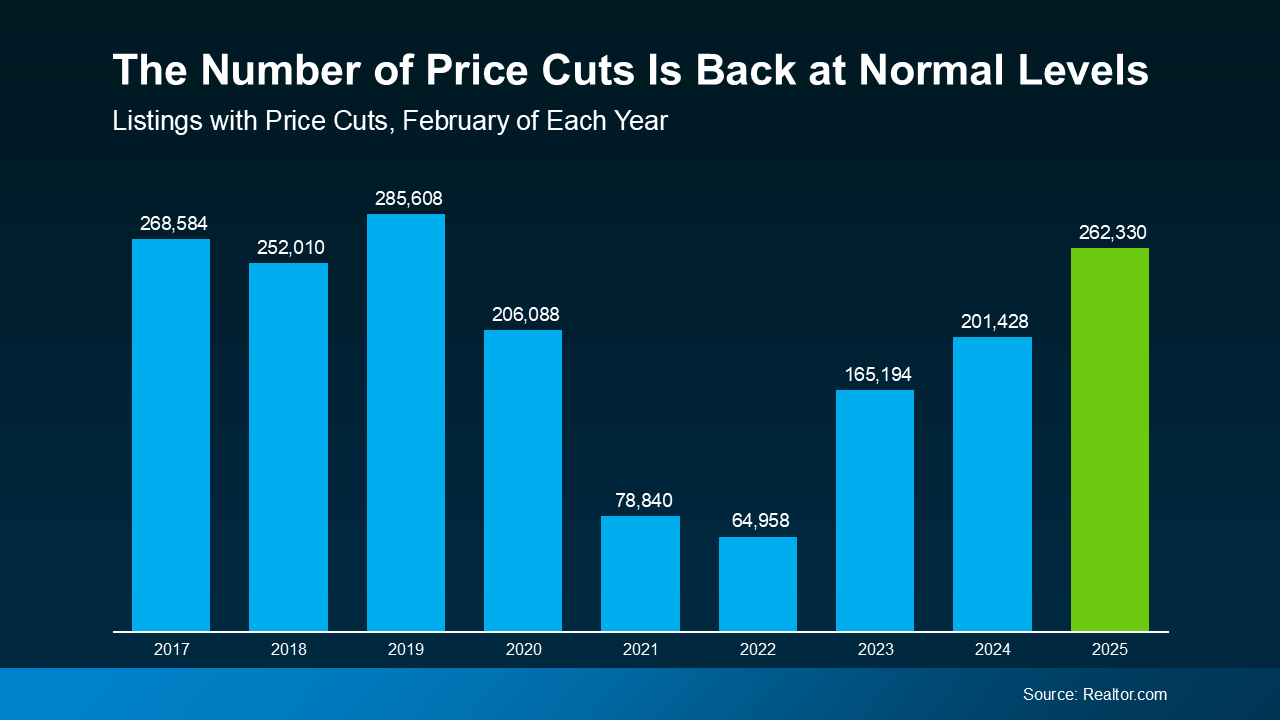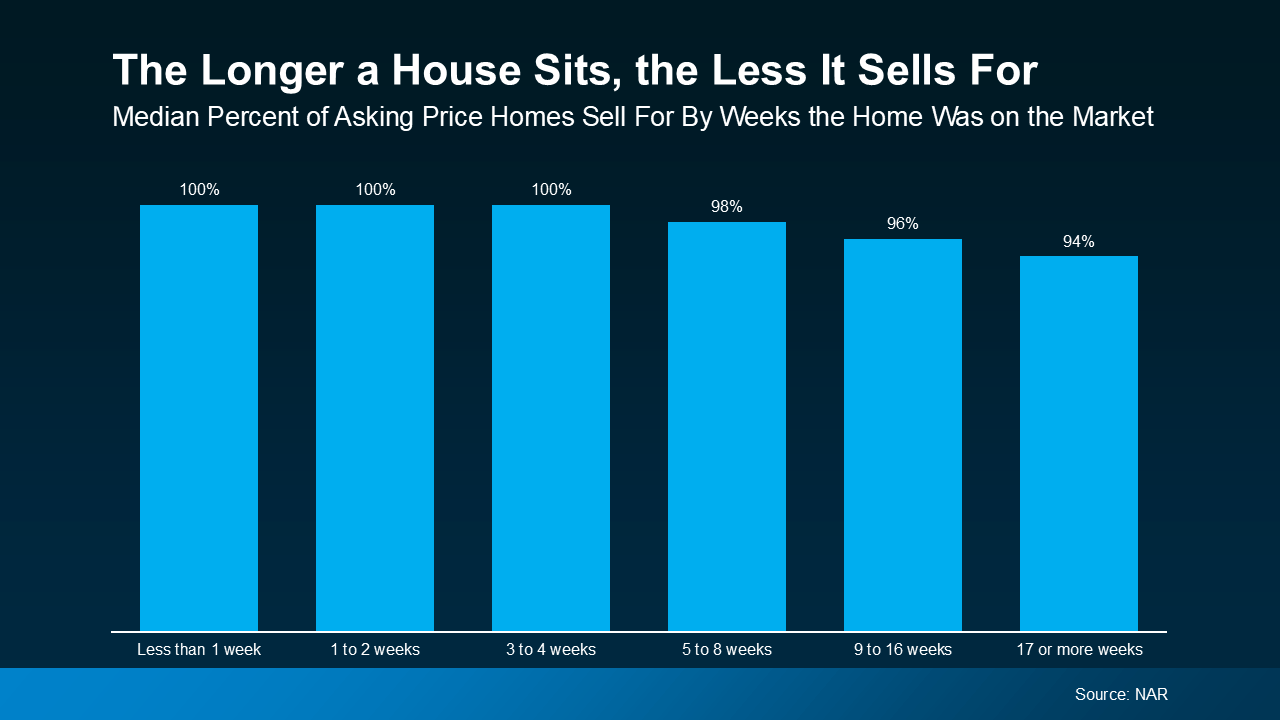When you list your house, the goal is usually to sell it quickly and at the best price possible. However, many sellers are aiming too high these days, not fully recognizing that the market has changed as inventory has increased. The result? More price cuts, but that doesn’t have to be the case. Here’s why.
Data from Realtor.com shows that in February, price cuts reached their highest level in any February since 2019 (see graph below):

Given that 2019 was the last “normal” year for the housing market, this is significant. We’re returning to typical market conditions.
This isn’t the same intense seller’s market we experienced a few years ago, and you might not get the same price your neighbor did during the pandemic peak. As a result, it may be time to adjust your expectations.
Here’s the reality: if you price too high and then have to lower it later, you could end up with offers lower than if you’d priced it correctly from the beginning. So, how can you avoid this? Rely on your agent for guidance.
How an Agent Helps You Nail the Right Price
A great agent doesn’t just guess a price. They use real data and market trends to determine what your home is truly worth today. This ensures you set a realistic price that attracts serious buyers.
Based on your agent’s analysis of the local market, they might suggest pricing your home slightly below market value to generate more interest and attract competitive offers. Here’s how your agent will determine the right price for your home:
-
They review recent sales. What price did similar homes in your area actually sell for, not just list for?
-
They analyze local market trends. Your home’s value is about what buyers in your area are willing to pay, not just what you hope to get.
-
They develop the right strategy. They’ll price your home to grab attention and create a sense of urgency among buyers.
Why Overpricing Backfires
Unfortunately, some sellers choose to ignore their agent’s advice and set a high price just to see what happens. They hope to either get their full asking price or have more room for negotiation. However, pricing too high often ends up costing you, and here’s why:
-
Buyers might not even consider it. Today’s buyers are more budget-conscious than ever, and if they think a home is overpriced, they’re likely to pass on it rather than attempt to negotiate.
-
It could linger on the market. The longer your home stays unsold, the more buyers may assume there’s something wrong with it, making it even harder to sell later.
-
You might end up with a lower offer. Homes that require price cuts often sell for less than they would have if they had been priced correctly from the start.
The graph below illustrates this trend, using data from the National Association of Realtors (NAR) to show that the longer a home sits on the market, the lower its selling price tends to be:


